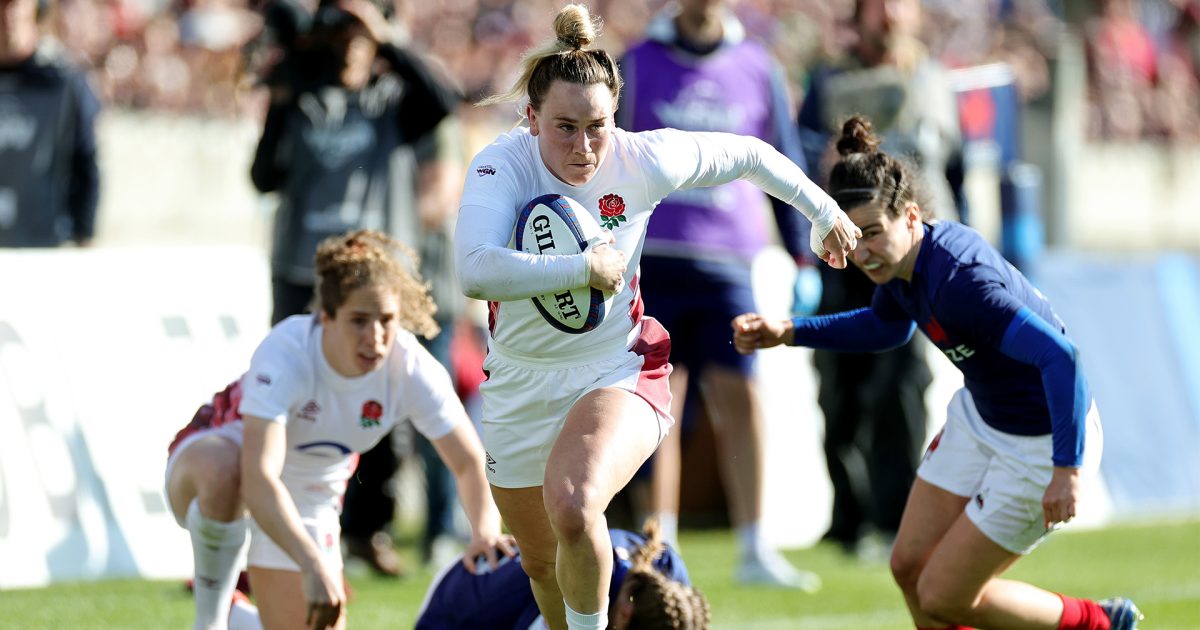'I was always included for my ability and not for my gender or sexuality'

As we look towards the Women’s Rugby World Cup 2025, we will showcase the intersectional representation in rugby, and highlight what makes women’s rugby unique.
As part of our Pride Month celebrations, England 15s and Great Britain sevens star Meg Jones spoke with RugbyPass about the part rugby plays in supporting the LGBTQ+ community and shared some of her own experiences with this.
“From the beginning, regardless of my sexuality, I was always accepted into the sport as being the only girl playing with the boys. I was always included for my ability and not for my gender or sexuality,” she said.
“At a young age, sexuality is not something that’s ever put as a question. When I turned around 15 or 16, it was something that was more accepting in the game. From a women’s and girls’ point of view, it is something that is accepted and normalised; it’s a lot more spoken about and people are open-minded about it.
“There is a bit of banter around it, particularly at the beginning when you’re coming out, but it’s all very accepting. Of course, I had question marks above my head but that was more aimed at my family because I came out to the team first as it was a lot easier.
“It normalised it for me and that was really important because I probably wouldn’t have had that easy route into telling my family without having the support of my rugby club and community. It allowed me to accept myself as well,” Jones added.
What can rugby do this Pride Month (and all year round) to show support?
“I think rugby is one of the biggest supporters and advocates of the LGBTQ+ community. The biggest thing is representation and visibility – that matters. I know Harlequins do a huge shift on their pride games, waving the rainbow flag which I think is really important because there is so much history and everything behind it.
“Sharing historical moments of lesbians, gay, trans, queer individuals and sharing stories is really important. I know the rugby community has been huge in supporting mine and Celia’s story and we’ve only had positive comments from that. That’s what the rugby community is about.
“The rugby community is very open-minded and I think visibility has been shown quite a lot over the years with individuals who have been open enough to speak about it.
“One of the main reasons I speak about it is I want people to feel comfortable speaking about it and it’s not ‘you have to come out, because I’m coming out’, it’s just a case of saying ‘this is me and my girlfriend, we’re very much normal and it’s no different to a heterosexual couple’.
“It’s about normalising that behaviour as much as possible and visibility is paramount on that.
What makes a good ally?
“Asking questions and not being shy. We’re going to get things wrong; even me from my point of view, I get things wrong. It’s about being curious and not rude, that’s the only thing people ask for.
“When people are curious, you want to help and educate if they are genuinely looking to help you out. Just be supportive of individuals who may be a little bit different to your ‘normal’ person, but then again, what is normal?
“A good ally will wave the flag when they need to wave the flag and if there are any comments which are derogatory or offensive towards an individual in the LGBTQ+ community, then shut them down.
“You may say ‘I know you’re joking, but have you considered how that may make them feel?’. Don’t get me wrong, I love a joke as much as the next person but it’s when it comes from a bad place it’s ‘hang on, that doesn’t sound like you care for me’. You should definitely care for one enough but that’s just basic human interactions really.”
The Women's Rugby World Cup 2025 is coming to England. Click here to buy tickets.











































